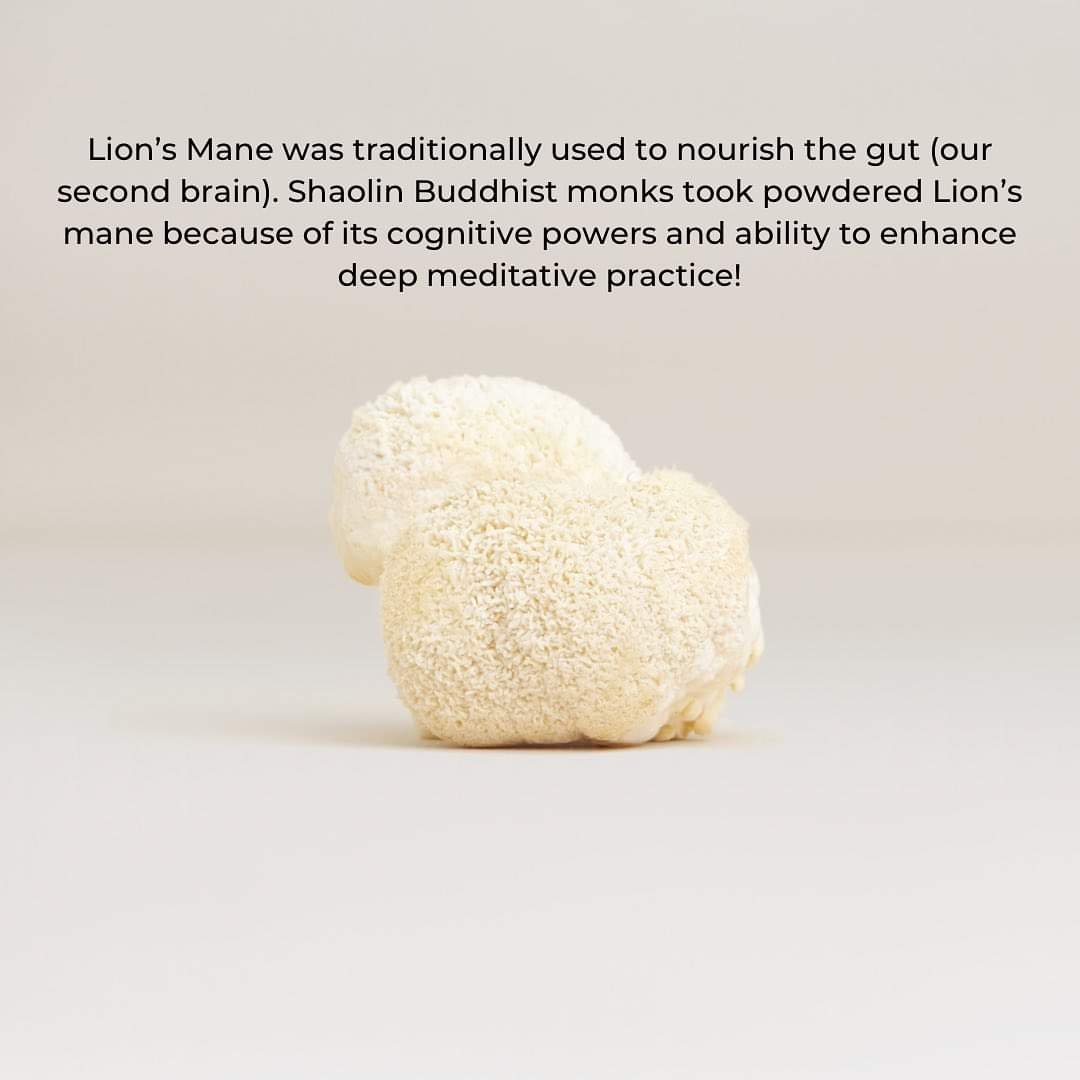Lion`s Mane Mushroom
Lion's Mane mushroom, scientifically known as Hericium erinaceus, is an edible and medicinal fungus that has gained attention for its potential health benefits, particularly for brain health and cognitive function. Here are some key points about Lion's Mane:
Physical Appearance: Lion's Mane mushrooms have a unique appearance, resembling cascading white icicles or a furry mane, which has led to its name. They are often used in culinary dishes in parts of Asia.
Brain Health: Lion's Mane is primarily recognized for its potential to support cognitive function and brain health. It contains compounds known as hericenones and erinacines that are believed to stimulate the production of nerve growth factor (NGF), a protein essential for the growth, maintenance, and survival of nerve cells. NGF is crucial for the development and function of the nervous system.
Cognitive Benefits: Research suggests that Lion's Mane may have neuroprotective effects and could potentially improve memory, focus, and overall cognitive function. Some studies have shown promising results in animal models and initial human trials regarding its effects on cognitive health.
Potential for Neurological Conditions: Due to its neuroprotective and nerve growth properties, Lion's Mane has drawn interest in its potential to support conditions like Alzheimer's disease, Parkinson's disease, and other neurodegenerative disorders. However, more research, particularly human clinical trials, is needed to validate these potential benefits.
Anti-inflammatory and Antioxidant Properties: Lion's Mane contains antioxidants and compounds with anti-inflammatory properties. These properties may contribute to its potential protective effects on the brain and nervous system.
Digestive Health: Some studies suggest that Lion's Mane may support digestive health by promoting the growth of beneficial gut bacteria and protecting against digestive issues. It may have prebiotic-like effects, aiding in gut health.
Forms and Consumption: Lion's Mane can be consumed fresh, dried, or in supplement form like capsules, powders, or extracts. It's also used in teas and culinary dishes for its unique taste and potential health benefits.
While Lion's Mane shows promise for brain health and other potential benefits, more robust scientific research, especially large-scale human clinical trials, is needed to firmly establish its efficacy, optimal dosage, and potential side effects in treating various conditions. As with any supplement or natural remedy, consulting a healthcare professional is advisable before adding Lion's Mane to your routine, especially if you have existing health conditions or are taking medications.
There's emerging interest in the potential effects of Lion's Mane mushroom on mental health, particularly regarding its impact on conditions like depression and anxiety. While research is still in its early stages, some studies have suggested potential benefits of Lion's Mane in addressing symptoms of depression:
Neurogenesis and Nerve Growth Factor (NGF): Lion's Mane contains compounds such as hericenones and erinacines that are believed to stimulate the production of nerve growth factor (NGF). NGF plays a role in the growth, maintenance, and survival of nerve cells. Some research suggests that increased NGF levels might support mental health by promoting the growth and regeneration of nerve cells in the brain.
Anti-inflammatory and Antioxidant Effects: Depression is often associated with increased inflammation and oxidative stress in the brain. Compounds in Lion's Mane exhibit anti-inflammatory and antioxidant properties, which might help reduce inflammation and oxidative damage, potentially contributing to improvements in mood disorders.
Mood Regulation: There is some evidence from animal studies suggesting that Lion's Mane extracts might have antidepressant-like effects. These effects could be related to the modulation of neurotransmitters involved in mood regulation, such as serotonin and dopamine.
Clinical Studies: While there have been promising findings in animal studies and some small-scale human trials, more extensive and rigorous research, particularly large-scale clinical trials in humans, is necessary to firmly establish the efficacy of Lion's Mane for depression.
It's important to note that individual responses to supplements like Lion's Mane can vary, and the effectiveness of natural remedies for depression may differ among individuals. Also, Lion's Mane should not be used as a sole treatment for depression without consulting a healthcare professional.
If you're considering Lion's Mane or any supplement as a complementary approach to managing depression, it's crucial to speak with a healthcare provider. They can provide guidance, monitor your progress, and ensure that it's safe to incorporate such supplements into your treatment plan, especially if you are already taking medications or undergoing other treatments for depression.
